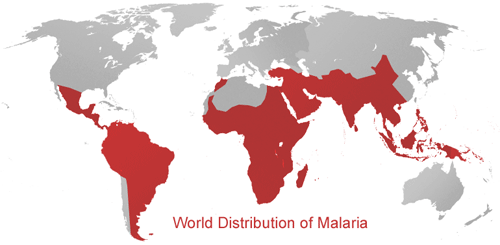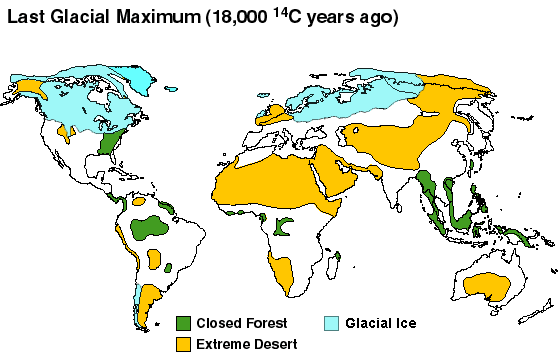
The World 18,000 Years Ago
Before "global warming" started 18,000 years ago most of the earth was a frozen and arid wasteland. Over half of earth 's surface was covered by glaciers or extreme desert. Forests were rare.
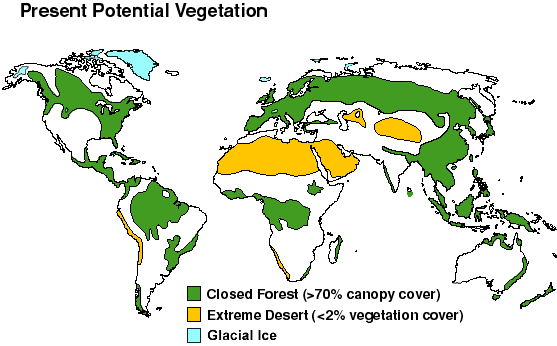
Our Present World
"Global warming" over the last 15,000 years has changed our world from an ice box to a garden. Today extreme deserts and glaciers have largely given way to grasslands, woodlands, and forests.
Global warming is the term used to describe a gradual increase in the average temperature of the Earth's atmosphere and its oceans, a change that is believed to be permanently changing the Earth’s climate forever.
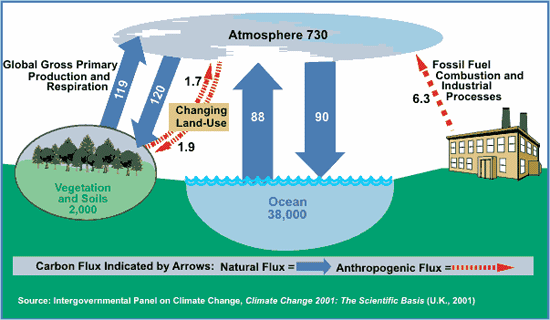
While many view the effects of global warming to be more substantial and more rapidly occurring than others do, the scientific consensus on climatic changes related to global warming is that the average temperature of the Earth has risen between 0.4 and 0.8 °C over the past 100 years. The increased volumes of carbon dioxide and other greenhouse gases released by the burning of fossil fuels, land clearing, agriculture, and other human activities, are believed to be the primary sources of the global warming that has occurred over the past 50 years.
Scientists from the Intergovernmental Panel on Climate carrying out global warming research have recently predicted that average global temperatures could increase between 1.4 and 5.8 °C by the year 2100. Changes resulting from global warming may include rising sea levels due to the melting of the polar ice caps, as well as an increase in occurrence and severity of storms and other severe weather events.
Global Warming effects:
Green house gases stay can stay in the atmosphere for an amount of years ranging from decades to hundreds and thousands of years. No matter what we do, global warming is going to have some effect on Earth. Here are the 5 deadliest effects of global warming.
1. Polar ice caps melting
The ice caps melting is a four-pronged danger.
First, it will raise sea levels. There are 5,773,000 cubic miles of water in ice caps, glaciers, and permanent snow. According to the National Snow and Ice Data Center, if all glaciers melted today the seas would rise about 230 feet. Luckily, that’s not going to happen all in one go! But sea levels will rise.
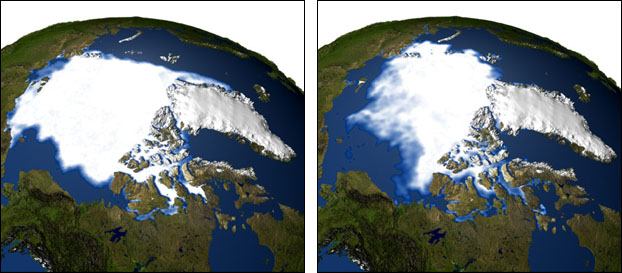
Process of melting ice caps
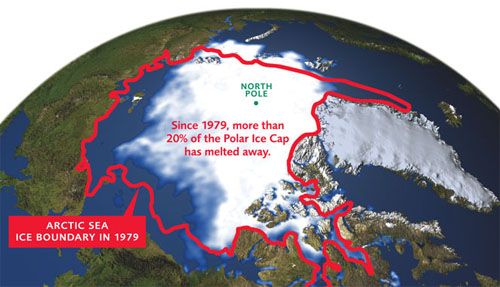
Second, melting ice caps will throw the global ecosystem out of balance. The ice caps are fresh water, and when they melt they will desalinate the ocean, or in plain English - make it less salty. The desalinization of the gulf current will "screw up" ocean currents, which regulate temperatures. The stream shutdown or irregularity would cool the area around north-east America and Western Europe. Luckily, that will slow some of the other effects of global warming in that area!

Beacuse of meltting of ice caps
Third, temperature rises and changing landscapes in the artic circle will endanger several species of animals. Only the most adaptable will survive.
Fourth, global warming could snowball with the ice caps gone. Ice caps are white, and reflect sunlight, much of which is relected back into space, further cooling Earth. If the ice caps melt, the only reflector is the ocean. Darker colors absorb sunlight, further warming the Earth.
2. Economic consequences
Most of the effects of anthropogenic global warming won’t be good. And these effects spell one thing for the countries of the world: economic consequences. Hurricanes cause do billions of dollars in damage, diseases cost money to treat and control and conflicts exacerbate all of these.
3. Increased probability and intensity of droughts and heat waves
Although some areas of Earth will become wetter due to global warming, other areas will suffer serious droughts and heat waves. Africa will receive the worst of it, with more severe droughts also expected in Europe. Water is already a dangerously rare commodity in Africa, and according to the Intergovernmental Panel on Climate Change, global warming will exacerbate the conditions and could lead to conflicts and war
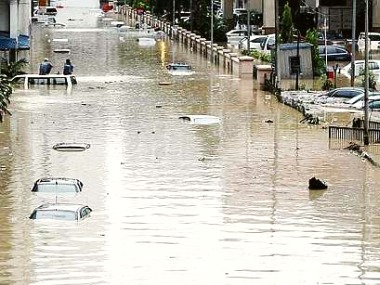
4. Warmer waters and more hurricanes
As the temperature of oceans rises, so will the probability of more frequent and stronger hurricanes. We saw in this in 2004 and 2005.
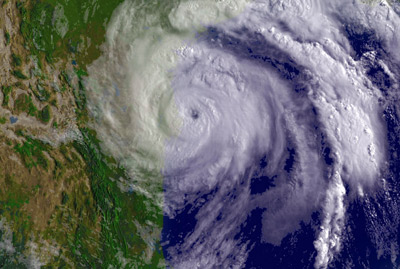
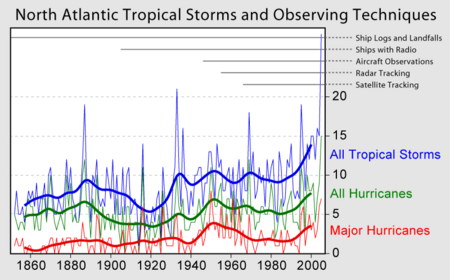
5. Spread of disease
As northern countries warm, disease carrying insects migrate north, bringing plague and disease with them. Indeed some scientists believe that in some countries thanks to global warming, malaria has not been fully eradicated.
